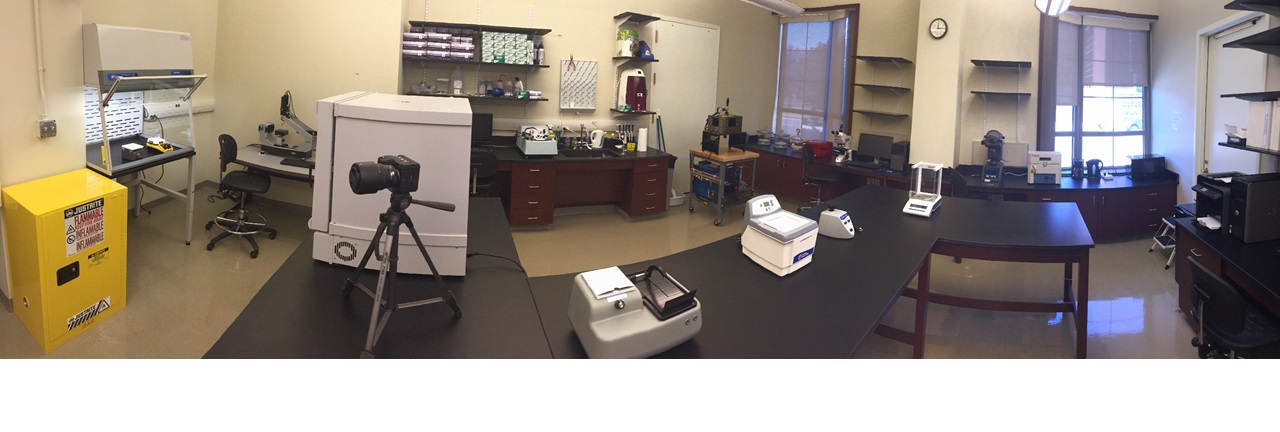Facilities
Major Equipment: The Advanced Functional Materials Laboratory (AFML) is an impressively outfitted, 440 square foot laboratory. The laboratory is well equipped with a wide variety of equipment necessary for the production and analysis of superhard materials. The lab has a single arc-melting furnace (MRF SA-200) for production of ingots from powdered components, 2 tube furnaces (Thermo Scientific Lindberg Blue M), a box furnace, a digital gravity-flow lab oven (Fisher Scientific Isotemp) and a vacuum oven(Fisher Scientific) for materials synthesis. Work requiring controlled environmental conditions can be performed in the lab’s three-port glove box (GermFree LFGB4SS), or bench-top temperature and humidity chamber (Thermotron Sm-1.0-3200). Synthesized samples can be cut with the lab’s diamond and trim saws (Ameritool 4”) and polished with 2 lapping machines (South Bay Technology Model 920). The lab is also equipped with a digital microhardness tester (Buehler Tukon 1202), with both Vickers and Knoop indenters for testing material’s hardness. The indents created by the microhardness tester may be further analyzed using the lab’s optical microscope (Zeiss Axio Scope A1). The lab has additional testing, analysis and storage equipment including a digital high-speed camera (Phantom Miro ex2) for high-speed imaging, a drop shape analyzer (Kruss DSA25) for contact angle measurements, a medical-grade freezer capable of -40 °C (Accucold VLT650L) for low temperature storage, a water purification system (EMD Millipore; RiOs-DI), an analytical balance (Mettler Toledo MS204S) and a quartz crystal microbalance (CM25) for precise weight measurements and a spin coater (Laurell WS-650Mz-23NPPB) for thin film coatings.
Facilities: The VCU Department of Mechanical and Nuclear Engineering houses a Nanoindentation hardness tester and a tensile testing machine. Also, the School of Engineering’s facilities include the Nanomaterials Core Characterization facility (NCC). This gives the lab access to X-ray diffraction, X-ray photoelectron spectroscopy and another contact angle measurement system. The NCC also offers two scanning electron microscopes and a transmission electron microscope. Additionally, the facility provides resources including complete surface analysis, chemical mapping, depth profiling, elemental speciation, surface roughness analysis, imaging using electron, optical, and x-ray methods, and a wide variety of sample preparation tools. Another resource is the Wright Virginia Microelectronics Center, featuring a 7,500 square-foot, class-1000 cleanroom, divided into two separate facilities, a 4,500 square-foot interdisciplinary cleanroom and a 3,000 square-foot microelectronics materials and device laboratory. This allows access to equipment for sputtering, thin film technology, and photolithography as well as clean room facilities.
